Africa at COP26, mainstreaming crypto, the continent’s “PayPal”
Hi Quartz Africa readers!


Hi Quartz Africa readers!
During the first two days of COP26, the UN’s climate conference taking place in Scotland this week and next, more than 25 African leaders took to the stage to demand climate justice and greater support from richer nations.
African leaders said that wealthy countries must make good on their pledge to deliver $100 billion a year in climate finance to developing countries, a commitment made at UN climate talks in 2009. A report recently predicted that they would not be able to meet this target until 2023. Between 2016 and 2018, only 25% of the money promised to developing nations went to Africa.
While the continent is responsible for just 3% of global emissions, it remains the most vulnerable region to global warming. African leaders are hoping the outcomes at COP26 could save their countries from further impacts of climate change. The African Union Commission warned that up to 118 million extremely poor people will be exposed to drought, floods, and extreme heat in Africa by 2030. Climate change could further lower GDP in sub-Saharan Africa by up to 3% by 2050.
“It is most unfortunate that the impact of climate change is disproportionately borne by the vulnerable communities which have contributed the least to the current stock of atmospheric carbon,” added Emmerson Dambudzo Mnangagwa, the president of Zimbabwe. “The expectation is that major emitters will scale up mitigation action.”
With renewed commitments made during the discussions, the main question that lingers is whether wealthier countries will this time honor those promises. —Priya Sippy, Quartz Africa contributor
Stories this week
Kenya and Nigeria refuse to sign a minimum tax deal. More than 130 countries and jurisdictions have signed up to a historic agreement to have global corporations pay a minimum tax rate of 15%. Carlos Mureithi reports on why Kenya and Nigeria are two of the four countries that have refused to sign the deal.
Nestcoin wants to make crypto mainstream. For all of their uses today in decentralized finance, non-fungible tokens and decentralized autonomous organizations are still not the easiest concepts to explain. Alexander Onukwue spoke to the co-founder and CEO of Nestcoin, a Nigerian startup, about how it plans to break down the knowledge barriers and open crypto opportunities to people in emerging markets.
Sending money to Europe from Africa shouldn’t be so hard. Thousands of Africans living outside the continent, including students and working professionals, often struggle to receive money from people back home. Alexander Onukwue explains the peer-to-peer system used by Nigeria-based Lemonade Finance, the continent’s “PayPal,” to serve this need.
Keep an eye on Ethiopia
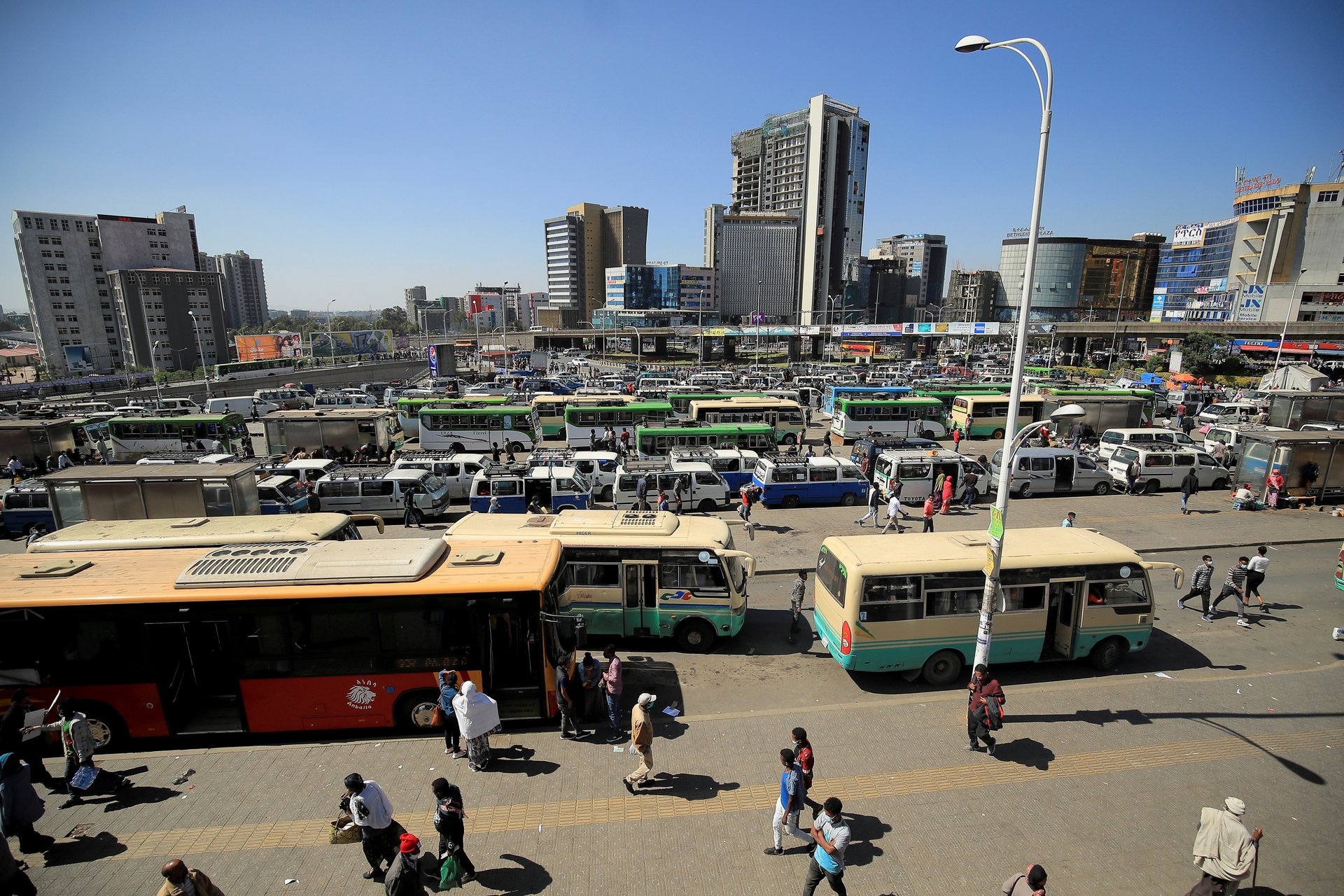
Ethiopia’s mounting conflict. On Tuesday, Ethiopia declared a six-month state of emergency after fighters from the Tigray region said they had captured two strategic towns and threatened to enter the country’s capital, Addis Ababa. Facebook removed a post from the country’s prime minister Abiy Ahmed for violating its policies against inciting violence, after he asked citizens to take up arms against the fighters. And on Friday, nine groups signed an agreement to oppose the Ethiopian government.
Funds grow for African agri-tech startups
Africa has a burgeoning agri-tech scene. The sector took 8.6% of the total funding secured by tech startups on the continent last year.
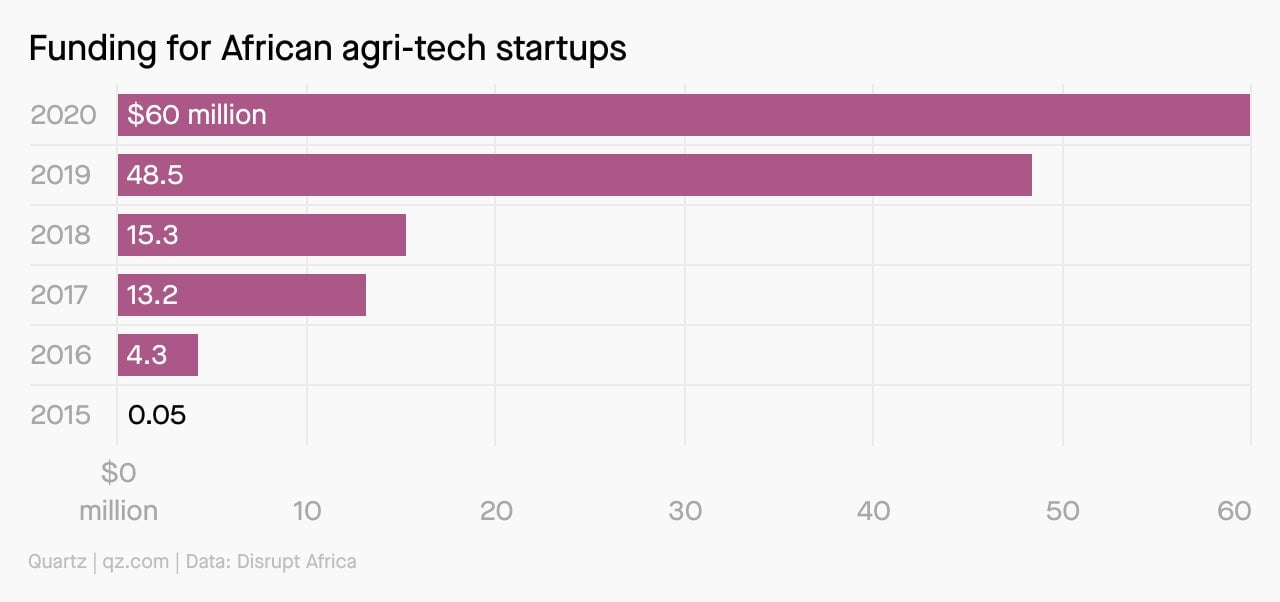
Carlos Mureithi unpacks a new report that says youth engagement in agriculture will be essential to the continent recovering from the economic impacts of the covid-19 pandemic. It highlights the need for investments to stimulate access to innovations, in order to encourage young Africans to embrace agriculture.
Spotlight on a Quartz Africa Innovator
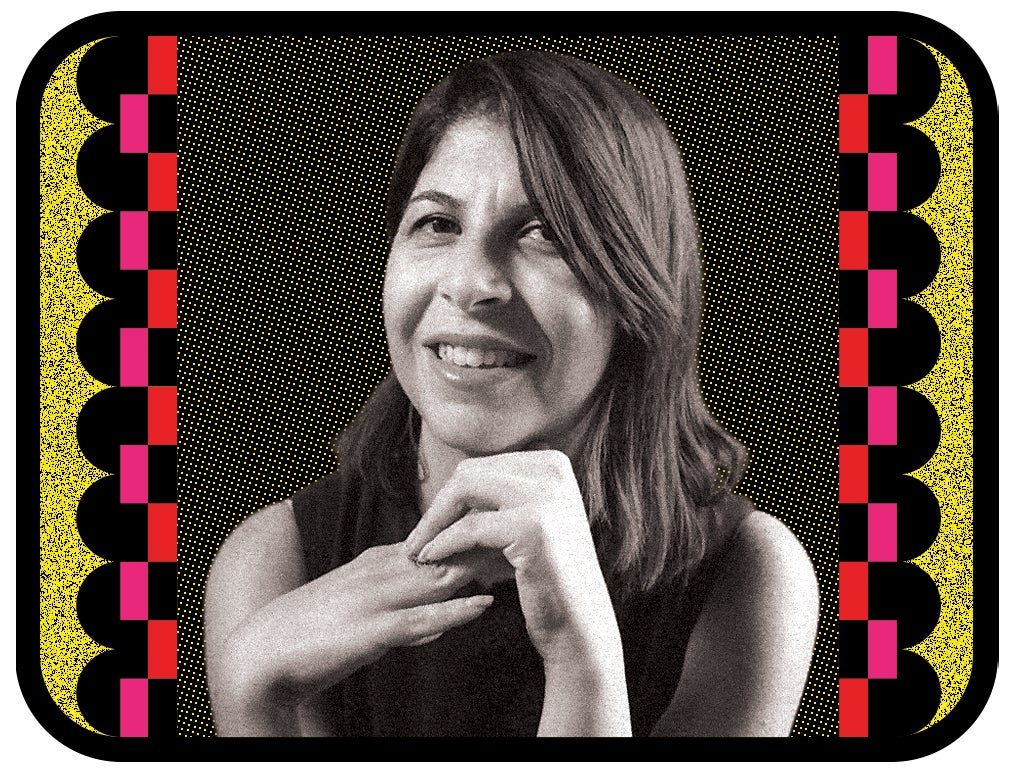
Climate change is already disrupting rainfall patterns and drying out the African continent, creating hazardous conditions for hundreds of millions of farmers. Amira Cheniour’s mission is to help them use what little water is available more efficiently, with the help of machine learning.
The daughter of an apple and olive farmer, the Tunisian entrepreneur studied engineering, and in 2015 helped her business partner Taher Mestiri design a low-cost, remote-controlled irrigation system that collects real-time data about weather conditions and crops’ water needs and directs water to each field accordingly.
So-called precision agriculture is the norm in the US and Europe, but is a rarity in Africa, where the vast majority of farming remains rain-fed. Starting with four farmers on a few dozen acres, Cheniour’s company Seabex reached a valuation of $2.3 million in 2020 and is now used on nearly 1,000 acres in Tunisia and France.
Check out Quartz Africa’s Innovators 2021 list, which showcases the pioneering work being done by Cheniour and other female African innovators.
Dealmaker
Chipper Cash, the cross-border payments company, raised $150 million and now has a valuation of $2 billion. It follows the company’s $100 million raise in May. As with that earlier round, Jeff Bezos’s investment firm got in on Chipper’s new deal, but the lead investor was cryptocurrency exchange platform FTX. The new funding makes Chipper the latest 2021 African unicorn, joining Flutterwave, OPay, Wave, and Andela.
Kenya-based Twiga Foods raised $50 million to continue scaling its platform, which connects farmers to food retailers. Creadev, a family office based in Nairobi and Paris, led the deal with the participation of some of Twiga’s existing investors, including TLcom Capital, IFC Ventures, and DOB Equity.
Egyptian online delivery company Breadfast raised $26 million in a round led by Sweden-based Vostok New Ventures and Endure Capital, a US firm. Breadfast, which started as an on-demand bakery service, says it has more than 2,500 stock keeping units in its store today, delivering everything from milk to soda in a model that imitates Gopuff, the American delivery company.
Person of interest
On Nov. 3 at an event in Paris, Senegalese novelist Mohamed Mbougar Sarr became the first writer from sub-Saharan Africa to win the Prix Goncourt, France’s oldest and most prestigious literary prize.
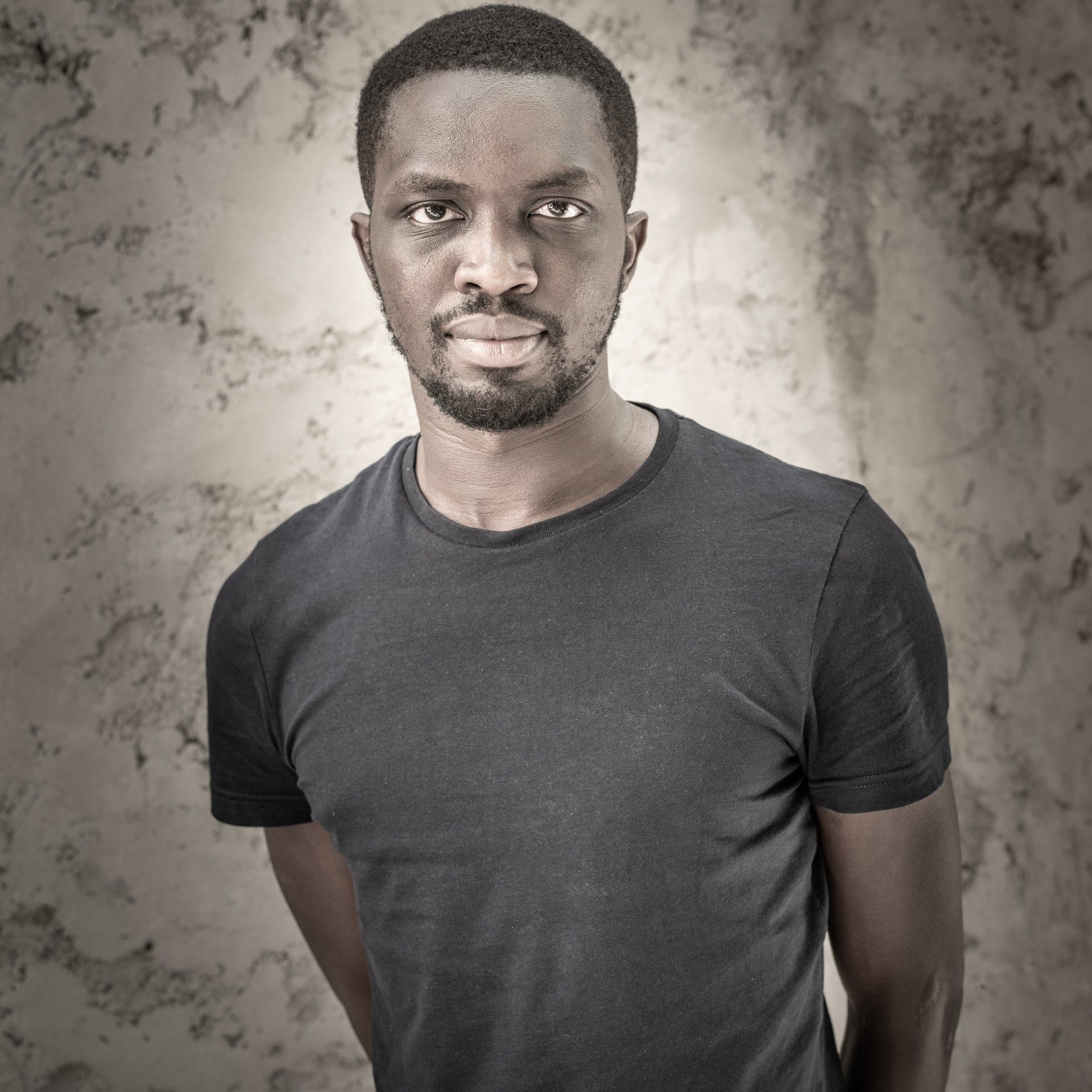
Sarr’s winning work, titled The Most Secret Memory of Men in English, is about a young writer who tries to find another writer whose career ended after brief success. The narrative is partly based on the real life and tragic story of Yambo Ouologuem, the first African to win a French literary prize in 1968.
Winning the Goncourt may not automatically make 31-year-old Sarr, who was born in Dakar but lives in France, rich. The prize only has a €10 ($11.50) cash reward. But he will definitely sell more copies of his novel and become more popular, joining a roll of honor that includes Marcel Proust, Simone de Beauvoir, and René Maran—the last Black person to win the Goncourt, in 1921, for a novel that criticized European rule in Africa.
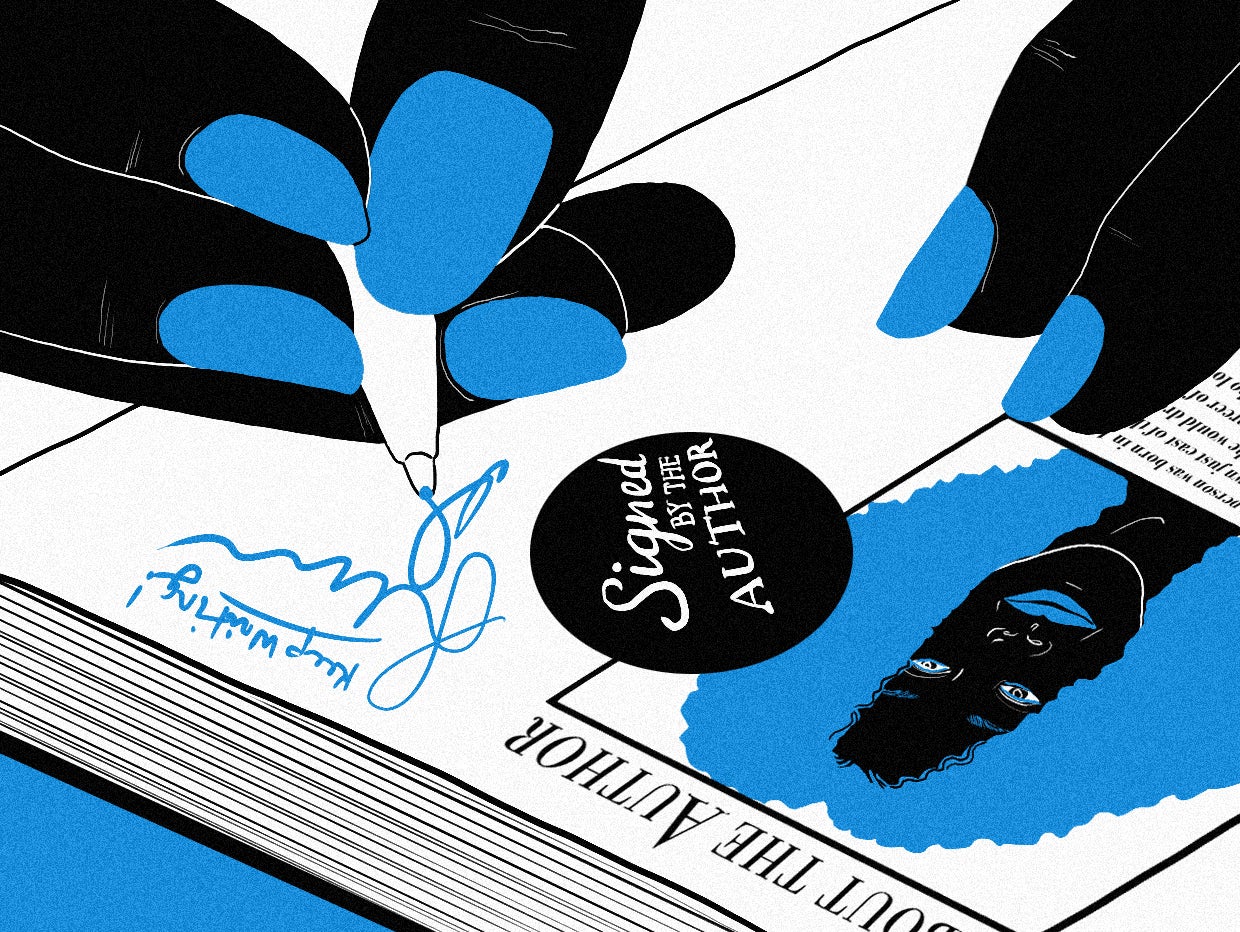
Quartz Gems
So you want to write a book. Great! That initial decision—and figuring out how to start—isn’t the problem. It’s how to persist through all the self-doubt, new words, confusion and wrong turns to actually finish the thing.
Whether you’re trying to do NaNoWriMo this November or just mulling the idea over in general, there are a few steps to hold fast to:
Don’t forget—it’s supposed to be fun. If you’re not enjoying it, readers sure won’t.
Set a writing goal. Stephen King aims for 10 pages a day, for a benchmark.
Don’t stop. Creative blocks are normal, not full-stops.
Don’t go it alone. Writing pals provide accountability (and some humor).
Sarah Todd, who is working on her own novel, and Quartz Africa editor Ciku Kimeria, who has written a few, shared more practical author advice in our latest How To email, a weekly breakdown of how to work more effectively for Quartz members. ✦ Try membership free for seven days.
Other things we liked
Africa’s energy needs clash with net-zero goals. COP26 so far has been a lot about western nations committing to no longer investing in fossil fuel projects. But as Nick Roll reports for The Christian Science Monitor, people in Senegal could really do with the energy generated from Africa’s plentiful natural gas reserves. (Hanna Ziady argued the same in CNN, Nigeria being the case study.) Over at the BBC, Vumani Mkhize talks about the challenges facing South Africa in implementing a COP26 deal to end its coal reliance.
An underground market for wifi passwords. For Rest of World, Kimberly Mutandiro reports that South African students are selling their schools’ wifi passwords to buy food to survive.
United Nations staff are reshaping African cities. Well-paid staff of the global body are creating special economies in their locales on the continent, The Economist writes, characterized by expensive food, high-end car washes, and posh cafés and dry cleaners.
An artist discovers his Ghanaian heritage through portraits. In i-D, Emma Russell profiles Kwabena Sekyi Appiah-Nti, a photographer who has lived mostly in the Netherlands but, through the pictures he took of contemporary life in Ghana, discovered his roots, and saw beyond western depictions of Africans as poor and suffering.
ICYMI
The future of energy. The DRC-Africa Business Forum will discuss the development of a robust battery, electric vehicle, and renewable energy value chain and market in Africa. (Nov. 24-25)
An opportunity to go to Tokyo. The Deloitte Young World Education Scholarship 2022 will enable five young leaders to attend the One Young World Summit in Tokyo next year. (Dec. 8)
🎵 This brief was produced while listening to “Ex” by Nikita Kering’ (Kenya)
Our best wishes for a productive and ideas-filled week. Please send any news, comments, suggestions, ideas, remittances, and award-winning novel manuscripts to [email protected]. You can follow us on Twitter at @qzafrica for updates throughout the day.
If you received this email from a friend or colleague, you can sign up here to receive the Quartz Africa Weekly Brief in your inbox every week. You can also follow Quartz Africa on Facebook.